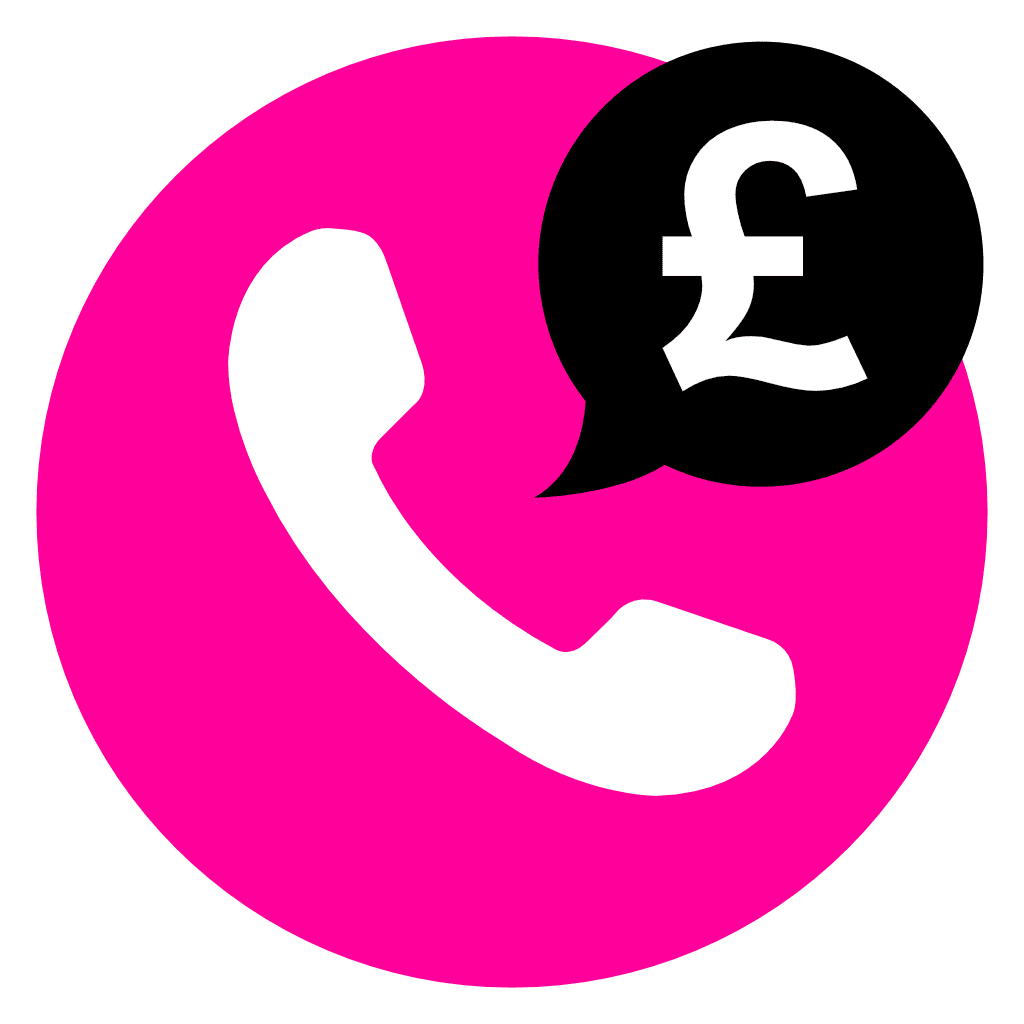When choosing a business communications provider, UK companies need to ensure they invest in a reliable, scalable, and feature-rich solution that can support their growth and operational efficiency. Two prominent names in the unified communications market are RingCentral and Vonage. Both offer robust VoIP and collaboration platforms, but their features, pricing, and suitability for specific business needs can differ. In this article, we will provide an in-depth comparison between RingCentral vs Vonage, focusing on their features and costs to help UK businesses make an informed decision.
RingCentral vs Vonage
| Feature/Category | RingCentral | Vonage |
|---|---|---|
| Platform Type | Unified communications (UCaaS) | VoIP and Unified communications |
| Key Features | – Messaging, video, and phone integration – Advanced call management – HD video meetings (up to 200 participants) – Team collaboration tools – AI-powered features (e.g., call transcription) – Over 200 integrations – International numbers in 100+ countries | – Cloud-based VoIP system – Video conferencing (limited to fewer participants) – Flexible API customisation – CRM integrations – Call forwarding, voicemail-to-email – Global communication and international numbers |
| Integrations | Over 200 integrations, including Salesforce, Microsoft 365, Google Workspace, Slack | CRM integrations (Salesforce, Zoho), limited other third-party integrations |
| Video Conferencing | HD video conferencing with up to 200 participants, screen sharing, and team chat | Basic video conferencing, fewer collaboration features |
| AI and Automation | AI-powered call transcription, meeting summaries, and speech recognition | Interactive voice response (IVR), virtual assistants, but less AI functionality |
| Mobile and Desktop Apps | Mobile-first design with strong mobile and desktop apps | User-friendly mobile and desktop apps, though not as advanced as RingCentral |
| Customisation | Limited to platform settings and integrations | Extensive customisation via APIs for voice, messaging, and video |
| Global Reach | International numbers in 100+ countries Global calling plans | International numbers available, competitive global calling rates |
| Call Management | Advanced call management (call forwarding, call routing, custom answering rules) | Call forwarding, voicemail-to-email, call screening, visual voicemail |
| Pricing | Essentials: £8.99/user/month (20-user limit) Standard: £14.99/user/month Premium: £19.99/user/month Ultimate: £24.99/user/month | Mobile: £10/user/month Premium: £15/user/month Advanced: £20/user/month |
| Best for | Larger businesses with global presence Companies needing extensive integrations and advanced video collaboration | Small businesses Companies seeking flexible, API-driven communication solutions |
| Pros | – Comprehensive UCaaS platform – Rich video conferencing tools – AI-powered productivity features – Global support – Extensive third-party app integrations | – Affordable for small businesses – API flexibility for customisation – Strong CRM integrations – Competitive global calling rates |
| Cons | – Higher pricing may deter small businesses – Platform complexity for smaller teams | – Limited video conferencing capabilities – Fewer third-party app integrations – Some reports of call quality issues |
Key features overview
Both RingCentral and Vonage are packed with features designed to support business communication and collaboration. Let’s break down the primary features offered by each platform.
RingCentral features
- Unified communications: RingCentral delivers a comprehensive unified communications as a service (UCaaS) solution, combining messaging, video, and phone in a single platform. This allows businesses to streamline internal and external communications seamlessly.
- Advanced call management: RingCentral offers call routing, call forwarding, and customisable answering rules, ensuring calls are handled efficiently.
- Video conferencing: With RingCentral Video, businesses can host HD video meetings with up to 200 participants, offering advanced collaboration tools such as screen sharing and team chat during calls.
- Integrations: RingCentral integrates with over 200 popular business applications, including Salesforce, Microsoft 365, Google Workspace, and Slack. This makes it easier for businesses to integrate communications within their existing workflows.
- AI-powered features: The platform includes AI capabilities like automatic call transcriptions, speech recognition, and meeting summaries, improving productivity.
- Team collaboration: RingCentral’s team messaging and task management tools facilitate better team collaboration, especially for remote or distributed workforces.
- Global reach: RingCentral supports businesses with international calling plans and local numbers in over 100 countries, making it ideal for global companies.
- Mobile and desktop apps: RingCentral provides a mobile-first experience with apps for iOS and Android, as well as robust desktop applications.
Vonage features
- Business phone system: Vonage Business Communications (VBC) is a cloud-based VoIP phone system offering essential call management features like call forwarding, voicemail-to-email, and call screening.
- Unified communications: Vonage provides a unified communications platform that includes voice, messaging, video conferencing, and team collaboration, though the video capabilities are less advanced compared to RingCentral.
- Customisation through APIs: Vonage excels in its flexibility for customisation, offering a suite of APIs for voice, messaging, and video, allowing businesses to build communication solutions tailored to their needs.
- CRM integrations: Vonage integrates with major CRM systems like Salesforce and Zoho, enabling businesses to streamline sales and customer support communications.
- AI and automation: Vonage uses AI to offer tools like interactive voice response (IVR) and virtual assistants, enhancing customer engagement.
- Global communication: Vonage supports global calling with international numbers available, and offers competitive rates for businesses with an international presence.
- Mobile and desktop apps: Vonage provides a user-friendly mobile app and desktop solution, although some reviews suggest the apps may lack some of the advanced functionalities found in RingCentral.
RingCentral vs Vonage pricing comparison
Both RingCentral and Vonage operate on a subscription-based model, with different tiers to accommodate businesses of various sizes and communication needs. However, pricing can vary significantly based on the features included at each tier.
RingCentral pricing
- Essentials: Starts at £8.99 per user per month for up to 20 users. This plan includes unlimited calls within the UK, team messaging, and document sharing.
- Standard: Priced at £14.99 per user per month. It adds unlimited internet fax, unlimited video meetings with up to 100 participants, and popular integrations like Microsoft 365 and Google Workspace.
- Premium: Priced at £19.99 per user per month. It offers advanced call handling, CRM integrations, analytics, and video meetings for up to 200 participants.
- Ultimate: Priced at £24.99 per user per month. This plan provides additional features like device status reports, more detailed analytics, and extended storage for video recordings.
Vonage pricing
- Mobile: Starts at £10 per user per month. This plan is designed for businesses needing essential voice and messaging services on mobile devices, without desktop phone support.
- Premium: Priced at £15 per user per month. It adds video conferencing, CRM integrations, and desktop phone support.
- Advanced: Priced at £20 per user per month. This plan includes call recording, visual voicemail, and advanced call management features, plus additional customisation options through APIs.
Pros and cons
RingCentral pros
- Comprehensive unified communications platform, with rich video conferencing tools.
- Seamless integration with over 200 applications, perfect for larger businesses needing advanced workflows.
- Strong global support with international numbers and multi-country calling plans.
- AI-powered features like call transcription and meeting summaries add value.
RingCentral cons
- Higher price points may be prohibitive for small businesses or startups.
- Some users report that the platform can be complex to set up and manage, especially for smaller teams.
Vonage pros
- Lower entry-level pricing, making it more affordable for small businesses.
- Flexible customisation through APIs, ideal for businesses needing specific communications features.
- Strong CRM integrations to enhance sales and customer service workflows.
- International support with competitive global calling rates.
Vonage cons
- Video conferencing capabilities are not as advanced as RingCentral’s offerings.
- Limited integrations compared to RingCentral’s extensive marketplace of third-party apps.
- Some users report occasional issues with call quality and reliability.
Conclusion – Which platform is right for your business?
The choice between RingCentral vs Vonage depends largely on your business’s size, needs, and budget.
- For larger businesses or those with international operations, RingCentral offers a more comprehensive, enterprise-grade solution. Its robust video conferencing, extensive integrations, and AI-powered features make it ideal for businesses that need a scalable, global communications platform.
- For smaller businesses, startups, or those with specific customisation needs, Vonage is an excellent choice. Its lower entry-level pricing, combined with flexible API-driven customisation, makes it attractive to businesses looking for a more cost-effective solution without sacrificing essential features.
When comparing RingCentral vs Vonage, it’s essential to assess your current communication needs and how they may evolve. While RingCentral offers a richer feature set at a higher price point, Vonage provides customisation and affordability that may better suit smaller UK businesses.
FAQ
Vonage is more affordable for small businesses, with lower entry-level pricing and flexible API customisation options. However, RingCentral offers more comprehensive features, especially for teams needing advanced video conferencing and third-party integrations. The choice depends on the specific needs and budget of your small business.
RingCentral provides superior video conferencing with HD quality and supports up to 200 participants, including collaboration tools like screen sharing and in-meeting chat. Vonage’s video conferencing is more basic, with fewer participants and limited collaboration features, making RingCentral the better choice for video-heavy businesses.
RingCentral integrates with over 200 applications, including Salesforce, Google Workspace, and Microsoft 365. Vonage, while still offering CRM integrations like Salesforce and Zoho, has fewer overall third-party integrations. For businesses relying on a wide range of apps, RingCentral is the better choice.
Vonage excels in customisation, offering API-driven solutions that allow businesses to tailor their communication systems. RingCentral provides some customisation within its platform but lacks the extensive API flexibility that Vonage offers, making Vonage the better choice for businesses needing highly tailored communication tools.
Both RingCentral and Vonage offer international numbers and global calling plans. However, RingCentral supports over 100 countries with more expansive global features, making it the better option for businesses with significant international operations. Vonage is competitive but offers slightly fewer global options.
Vonage generally offers lower pricing, starting at £10 per user per month. RingCentral’s plans start at £8.99 but offer fewer features at that level. For basic needs, Vonage is more affordable, but RingCentral’s higher-tier plans provide more value for businesses needing advanced features like AI tools and video conferencing.
Yes, both RingCentral and Vonage offer mobile and desktop apps. RingCentral’s apps are more feature-rich, particularly for managing team collaboration and video conferencing. Vonage’s apps are user-friendly but have fewer advanced functionalities, making RingCentral a better choice for mobile-first businesses needing more robust features.
RingCentral offers more advanced AI-powered features, including call transcriptions, meeting summaries, and speech recognition. Vonage focuses more on automation tools like interactive voice response (IVR) and virtual assistants, but lacks the broader AI tools that RingCentral provides, making RingCentral superior in this area.
Vonage is generally easier to set up and manage, especially for small businesses with basic needs. RingCentral, while offering more features, can be more complex to configure, particularly for small teams. If ease of setup is a priority, Vonage is often the simpler solution.
Both RingCentral and Vonage offer international calling plans, but RingCentral supports more countries and offers more comprehensive global features. Vonage’s international rates are competitive, but for businesses needing extensive global communication, RingCentral’s broader reach makes it the stronger option.

